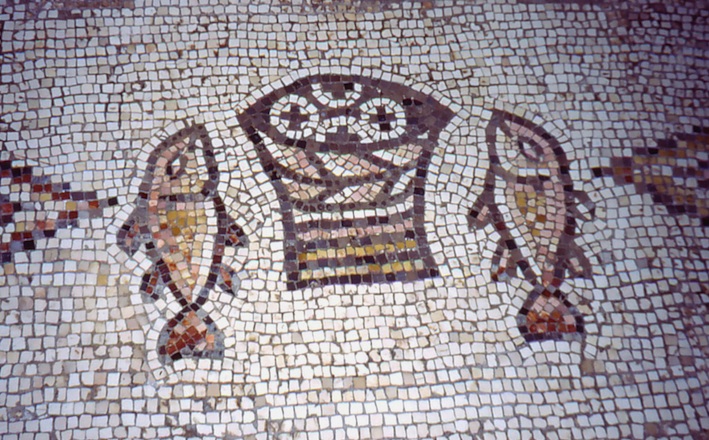Commentary on Genesis 32:22-31
The character of Jacob is deeply enigmatic for many Christian readers.
Throughout the stories of Genesis 25- 31, we have seen Jacob con, cheat, deceive, and manipulate virtually every member of his family and then run off when the tension was about to explode into full conflict. The fact that Jacob seems to get away with this bad behavior and also garner promises, wives, children and household goods in the process only increases the reader’s ambivalence about this ancestor of Israel.
So it is hard for many in the pews to find much that is enlightening in this story of Jacob wrestling with God. For those of us who have been formed by a piety that values submission and deference to any form of religious authority, this passage can rub the wrong way. And yet, for our Jewish brothers and sisters, this passage plays a central role in modeling the practices of a faithful Jewish life. How can that be? How can this deceitful and irreverent trickster possibly be deserving of God’s enormous favor? How can Jacob be a role model for faithful readers?
To make sense of this story of undeserved blessings, we should consider it in the context of Jacob’s extended journey from Canaan to Syria and back. Very often, stories of journeys (biblical or otherwise) are also stories about character transformation. The story in Genesis 32 finds Jacob homeward bound after 20 years away, with his past threatening to catch up with him. Faced with the prospect of meeting up with Esau, who may yet wish revenge, Jacob finds himself at a turning point: he can face up to what waits for him or he can do what he has done in the past — turn tail and run.
As this passage opens, Jacob seems to be finding a way to protect what is his in the face of Esau’s wrath. His trickster mind engaged, Jacob has divided up his family and servants into two separate camps and has sent them away, across the Jabbok River, leaving him alone. This is a rare event. Like most twins, Jacob has virtually never had a solitary moment. Since his conception, he has been tied up and entangled with at least one other human being at any given moment.
The last time that Jacob spent the night alone, he was in Bethel, having barely escaped Esau. With the threat behind him, God visited the sleeping Jacob and promised even more blessings to come — land, progeny, protection (Genesis 28). On Jacob’s return trip home, God again takes advantage of the brief moment of solitude, a moment when Jacob is most exposed and vulnerable, to reveal God’s self. But this time God comes posing as a dark and disguised threat, not as a protector.
The text is cryptic, simply saying that “a man wrestled with Jacob until the break of dawn.” Yet several interesting things stand out. Notice the time. In folk tales as well as biblical stories, the moment of dawn is an important one; the time between night and day is the perfect point to signal an epic conflict and transforming event. Notice also that the passage doesn’t reveal the identity of the man.
Commentators have suggested various solutions over the centuries; some say the man is Jacob’s greatest fear and rival — his brother come to him, disguised in the dark, for vengeance. Others have suggested that it is Jacob’s own inner demons that have come calling. In verse 31, however, Jacob identifies this stranger to be none other than YHWH. But why is God now playing the part of the antagonist? Is God tired of being little more to Jacob than the dispenser of goodies? Is God trying to teach the patriarch-to-be a lesson about not taking divine gifts for granted? Is this a test of character or a test of faith?
Whatever the reason for the attack, Jacob’s response is to stand his ground and face his attacker. Indeed, Jacob chooses to entangle himself with this threatening form. In some ways, this is not a new response, for Jacob was wrestler even before his birth. Indeed, the Yahwist writer engages in some clever wordplay to show the close connection between the name Jacob (y’kv) and the verb for wrestling (y‘vk) in verse 25. But in other respects, Jacob’s reaction is a departure from the usual. In tangling with God, Jacob foregoes the sly and indirect forms of aggression that he had cultivated as an adult. Instead of cunning evasion, he fights openly and persistently to get what he most wants — a blessing!
Careful observers of human relationships often notice that the same kind of energy propels both physical intimacy and physical fighting. So, too, for Jacob, this face-to-face confrontation with God is a kind of intimacy. Rashi, the great medieval Jewish commentator, long ago highlighted this dynamic saying, “for so is the habit of two people who make strong efforts to throw each other down, that one embraces the other and attaches himself to him with his arms.”
Just so, Jacob chooses to cling to God and refuses to disengage — a stark contrast to his response to God’s overtures 20 years before when he could offer little more than a conditional attachment to YHWH (28:20-22). Moreover, even as Jacob finds himself facing up to this divine opponent and surviving it (notice the language of “Peniel” in verse 31), so Jacob also finds the resources to face his brother and embrace him. In 33:11, Jacob connects the two events saying, “For truly to see your face is like seeing the face of God — since you have received me with such favor.”
The character of Jacob and the character of God are both remarkably displayed in this passage. God does not punish Jacob’s conflictive character, but challenges it and reshapes it so that Jacob is able to live into his promised destiny as Israel, which according to verse 29 means “one who strives with God and humans.” Jacob’s story is a much-needed reminder that in the life of faith, there is no one model to which we must conform and submit. God entertains all kinds of characters and personalities, even those who appear to be unconventional or irreverent by our standards.
Finally, the story also challenges any attempt to domesticate God and make the deity fit into some easy mold, whether that is “the wrathful God” or the “God who meets my needs.” Jacob came away from the encounter with unbounded blessings, but he also walked away limping — a man permanently marked. It attests to the complex reality of a God who is intimately engaged with humans, who seeks them out, and blesses them, even it reminds us that this God is wily, unpredictable, and dangerous.


August 3, 2014